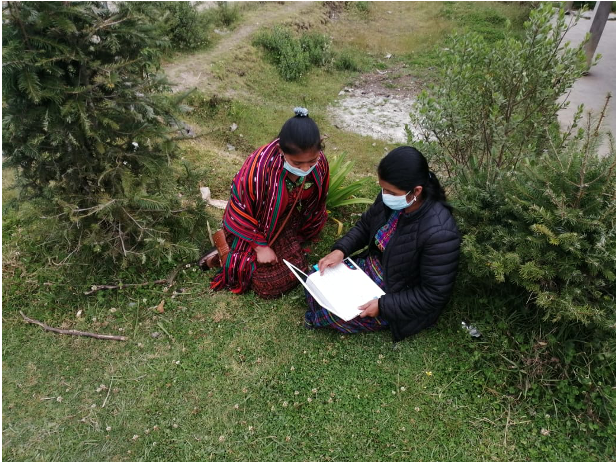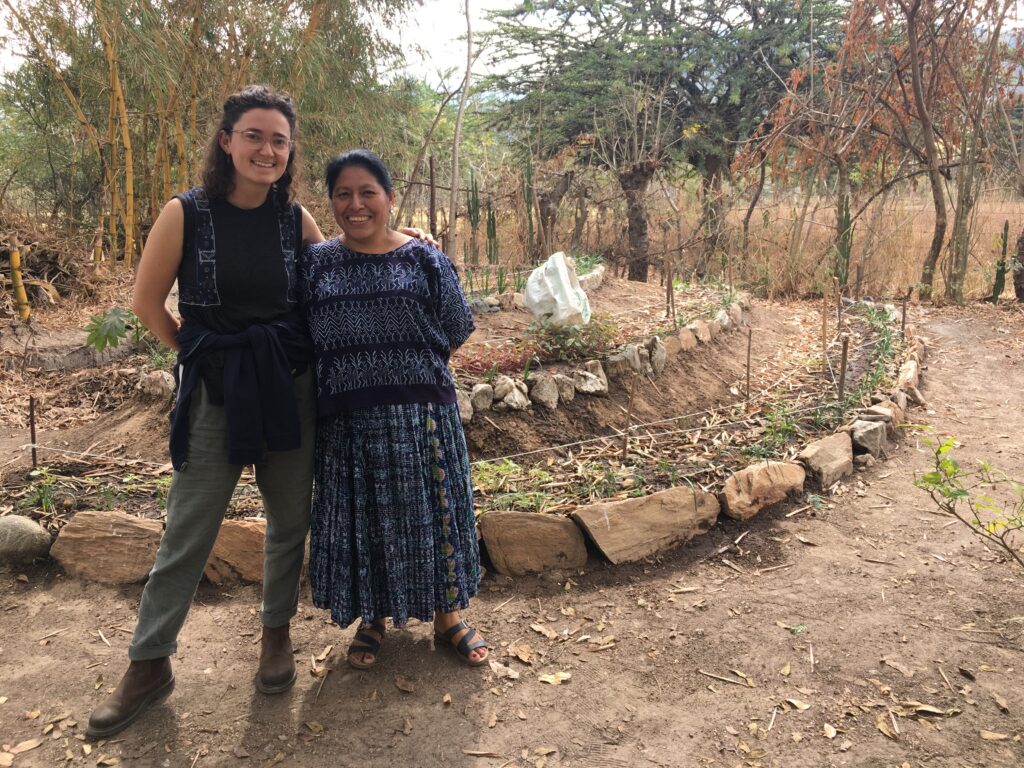Anika Rice 2020 Field Report
2020 CLAG Field Study Award
Pandemic-Era Agroecology in Guatemala: Economic solidarity and smallholder resilience to economic shock
In summer 2020 I was planning to do three months of ethnographic work with women leaders and members of agroecological community organizations in Rabinal, Baja Verapaz, Guatemala. My goals were to document women’s organizing and barriers to organizing within these organizations, and to record the agrobiodiversity contributions of these projects to their communities. An action-based part of my research plan was to facilitate a farmer exchange between members at my sites in Rabinal with a similar organization in the Western highlands of Guatemala in the department of San Marcos, in collaboration with other UW Madison researchers.
Because of the pandemic and my inability to do in-person fieldwork, I pivoted to a remote study about Guatemalan farmers’ challenges and responses during the COVID-19 pandemic. I have used contacts at other organizations, mentioned above, and partnered with two other researchers to identify a wider set of field sites. In December 2020-April 2021, I partnered with eight farmer organizations in five departments to conduct surveys and record short interview responses with farmers via Zoom and Whatsapp. I had four research questions (RQs):
RQ1: How were smallholder farmers who are connected to agroecology organizations affected in terms of production, consumption and commercialization of food crops during the COVID-19 pandemic?
RQ2: How does agroecology affect smallholder resilience to the economic shocks associated with sudden shifts in access to formal markets?
RQ3: Given the variable and differentiated effects of the closure of municipal markets on smallholders’ ability to sell agricultural products, how did farmer organizations influence farmers’ responses to economic shock?
RQ4: How do organizations’ efforts to promote agroecology open up space for longterm solidarity building among farmers?
In short, a combination of qualitative and quantitative data suggests that farmers were most affected in terms of sales of agricultural goods during the pandemic, due to the qualitatively distinct nature of mobility and market restrictions during the pandemic. I also found that among farmers with different levels of exposure and participation in agroecology, the more agroecologically-engaged farmers were more resilient at the farm level (in terms of production and consumption). Finally, qualitative data suggests that agroecology organizations support social networks that made farmers more agile in their response to economic shock. This research uses a resilience framework to evaluate livelihood outcomes during the pandemic, while contextualizing debates around agroecology and critiques of resilience in marginalized and/or indigenous communities.
The field study award was used for compensating my partner organizations as well as individual farmer participants. I asked each organizational contact to fill out lengthy surveys with the leaders and directors of their organization. At each organization, my contacts were also research assistants who spent time identifying farmer participants. At four field sites, I provided additional hourly compensation for translation services from Mayan languages to Spanish. I also provided a modest stipend to the individual farmer participants (70 in total) for their time and the use of internet data on their devices. Some other minor costs were incurred for bank and money-sending transaction fees to each of the eight organizations.

While this remote research was vastly different than what I had expected, it is contributing to my future academic plans in exciting ways. Because I got to work with eight agroecology organizations, I now have more research contacts around Guatemala. I plan to visit many of them in Summer 2022, and see these new connections as possible partners for PhD research. I also feel grateful that I have a deep understanding of the rural and agrarian effects of the pandemic in Guatemala, because any future research will need to be situated in these new realities.
Thank you for your continued support; I look forward to sharing this work with the CLAG community via presentations or publications.
Sincerely,
Anika Rice
University of Wisconsin-Madison
Please see the full report for more details.



















